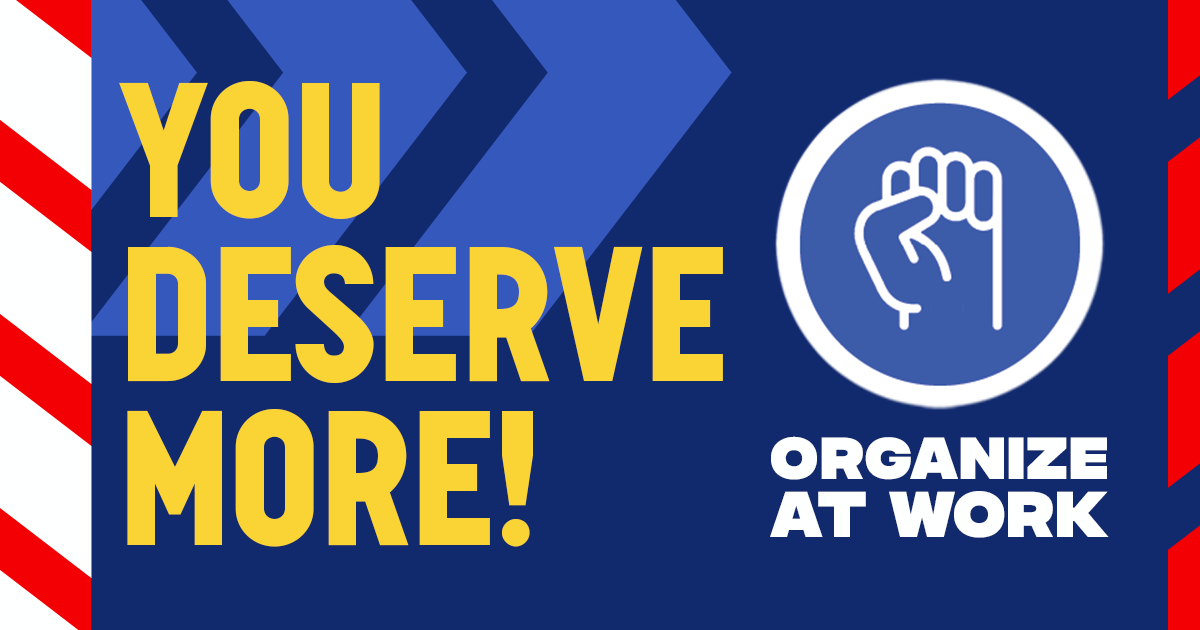The emergency in America is not just the spread of COVID. It is falling wages and worsening workplace conditions, income inequality that grows wider every day, and the erosion of union power and workers’ rights.
Upcoming Events
Heard about something in labor news recently that you have thoughts about? Have an experience as a worker, organizer, etc. that would benefit others to know about? Notice any trends in workplace news that’s got your attention and you want to draw attention to? The media team is looking for blog contributors! You don’t need to have experience in writing, that’s where the media team can help! Check out what we’ve published so far. Email us with pitch ideas!
Richard Trumka, long-time president of the AFL-CIO, and a formidable presence in the labor movement, died unexpectedly yesterday. While not without shortcomings, Trumka will be remembered for the unbelievable strides he pushed within AFL-CIO and the broader movement, including public support for LGBTQ+ and immigrant rights and being outspoken on the lack of racial justice awareness in labor. Even so, this loss leaves movement leaders with much to carry on. As C.M. Lewis writes in his acute profile of Trumka for Strikewave, “the movement we build, and the leaders which lead it, will be Trumka’s legacy.”
World of Work 🌍
USA: “I just want to be safe at work. I don’t need a hotdog.” After being praised as “heroes” during the early stages of the pandemic, nurses across the country are striking over work conditions that put their lives and patients’ lives at risk. Many nurses say that words of gratitude and empty gestures like free hot dogs are not enough; what they really need is more staff to support them and allow them to take breaks during their shifts.
NC: What does it look like when employers slowly and deliberately crush a union drive? Leaked recordings of meetings at a production facility for plant-based meat reveal an alarming picture of deception and manipulation. In February of 2020, workers at the plant were considering forming a union when management subjected them to a series of mandatory meetings presented as “educational” sessions. Pulling straight from the union-busting playbook, management railed against unions in these meetings, issuing thinly disguised threats about how pay and benefits might be negatively impacted if workers voted to unionize. It’s a rare look at the intense pressure campaigns waged by employers in response to organizing efforts.
USA: April 3 marked Black Women’s Equal Pay Day, which calls attention to the black women pay gap. To date, black women earn 63 cents for every dollar that white men are paid, which is even worse than the 82 cents for every dollar earned by working women in general. Gender-based wage discrimination, defined as unequal pay for substantially equal work, has persisted across industries, occupations, and education levels, despite being illegal since 1963.
USA: “A lot of us died.” The Daily investigates the labor shortage, interviewing former hospitality workers to learn why they are not returning to their pre-pandemic jobs. Hint: it’s not because they’re lazy.
Washington, DC: The Democratic National Committee has voted to join SEIU Local 500, making it the first national party organization to have a unionized workplace. For its part, the Democratic Party has voiced support for the move, citing “the key role of unions in building the middle class.”
CA: Over 17,000 student researchers across the University of California system have voted to unionize, making this one of the largest union drives in recent US history. If they win, the total number of union members in the US would increase by 0.1 percent.
New From Our Blog 🗣
Millions of workers want a union, but organizing campaigns are not reaching enough of them. In a three-part series, EWOC organizer Eric Dirnbach outlines the labor movement’s problems and why an organization like EWOC might be part of the solution. Read the third and final piece.
After a year of precarious pandemic protocols, graduate workers at UT Austin are facing cuts to their healthcare. Read two students from Underpaid@UT write about their organizing, with assistance from EWOC, in The Nation.
Solidarity,
Team EWOC




